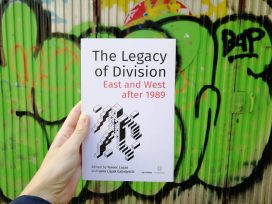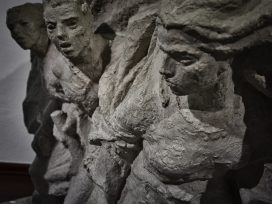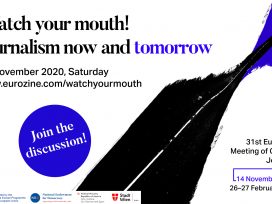Dear editors of cultural journals,
Dear organizers and participants of the conference,
Dear guests of Lithuania,
I welcome all of you who have gathered here today in the capital city of Lithuania. I see this forum of intellectuals as a highlight in the celebrations of the Millennium of Lithuania and as a meaningful part of the programme of Vilnius: European Capital of Culture 2009, reminding us of our common European past and allowing us to identify and find answers to the problems arising from it.
I consider it very important to openly raise, discuss and exchange opinions on historical issues. For Lithuania – a country in which academic freedom was stifled for half a century and where maximum efforts were made to erase its historical memory – such openness is a truly great value. At the same time, we remember those Lithuanian traditions that take root in the distant past. We have always been a multi-ethnic and multi-cultural country, where people of different backgrounds, faiths and beliefs would always find common ground, even in their understanding of history. This tolerance and respect for alternative opinions has always been the pillar of peaceful coexistence, and has never lost its meaning and significance.
We have gathered here on a historic day, 8 May, marking the end of World War II in Europe and the continent’s return to building a civilized and cultured life. Unfortunately, this date is also a reminder of a forcefully disunited and divided Europe. For Lithuania, like many other eastern European nations, 8 May 1945 did not bring victory over violence, but simply a change of oppressor. Once again, history was turned into the handmaiden of politics and ideology, thrust upon Lithuania and its people to cover up injustice and crime, to distort facts and to slander independence and freedom fighters. Today, after more than six decades, it is evident that victory without the foundations of trust and morality is no victory, while history based on falsification is no history. Therefore, we cannot allow politically coloured revenge policies to re-enter the stage of historical science and replace our cherished values with technologies.
The world is becoming ever more global and problems are taking on an ever more general aspect. The phenomenon named the European Union is the best proof that today, problems relating to a single region or nation are European level issues; that the progress of a single country means that the whole of Europe is advancing, growing stronger and better.
Once again, therefore, I would like to underscore that in our times we cannot think or talk in Cold War terms that divide Europeans into those who are right and those who are wrong or, worse yet, into our friends and enemies. All of us are members of a single family with the name of Europe. Having discarded the front lines in our everyday life, we also have to eliminate them in books, journals, academia and public discourse. Let us not be afraid of searching for answers to uncomfortable questions. The words pronounced two thousand years ago “The truth shall make you free” are still contemporary today.
Even more so that Europe has always been viewed as the citadel of democracy. True democracy begins with the individual, national self-determination and respect of others’ choices. Only a future built on the foundations of common and universal values will be truly secure. We discussed and contemplated these things – though in different words – twenty years ago when the Berlin Wall fell and when Lithuanians and other nations rose for their freedom in a uniting Europe. We spoke openly, guided by trust, not afraid to apologize or accept apologies from others.
All of this has not lost its relevance as we look back and evaluate the history of Lithuania and of Europe. I therefore sincerely wish historians from all countries the confidence to hold open conversations, the determination to speak out and the tolerance to hear and understand others. It would be the essential pre-condition for developing a concept of history that recognizes the different experiences of different countries, nations and states as an integral part of our common Europe.
That is how I understand the aims and objectives of this forum. I wish you lively discussions and the best of success to all participants.






